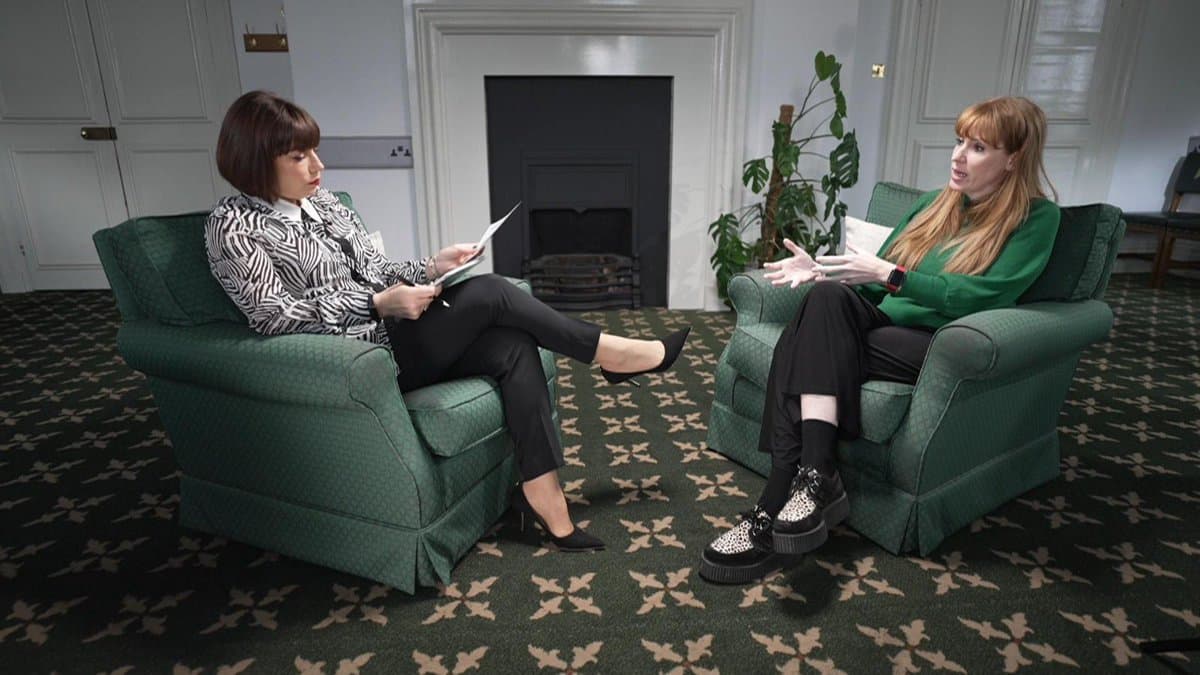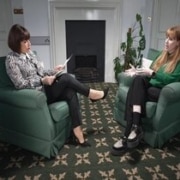High Profile Political Interviews
High Profile Political Interviews are only Vaguely Relevant to Standard Media Training
One of my clients alerted me to this Podcast from Politico: The Art of the Political Interview. It is a great listen and speaks to both sides: the journalists and the politicians…some who have experienced unhelpful coverage. And it unpacks the stereotypes. Explaining the difference between interviewers who start by thinking ‘Why is the b****** lying to me?’ a style much loved by Jeremy Paxman and now Beth Rigby, to those with a more softly, softly approach.

Sky’s Political Editor Beth Rigby interviewing Labour’s Angela Rayner in January 2023
First, the senior journalists in the podcast stress the depth and breadth of research, the honing of questions, even the role-play of interviews. I know this happens, but as a financial journalist both at the BBC and Reuters and a freelancer at CNBC and Bloomberg, I can tell you it happens rarely. Generally, research and preparation are squeezed and remarkably superficial; the news machine is intense and relentless with little time for deep research. In fact, one of the things that defines a good journalist is spending large amounts of their own time reading newspapers and other news sources. This not only means they have instant perspective on any new story, but it also means they need little briefing or prep time.
Another key difference is that in most political interviews the facts of the case are known. You rarely get a real insight into something new in a political interview. Policies or potential policies have been floated, leaked, chewed over in parliament or select committees, dissected by the opposition, etc. You might get a new insight into something that has just happened, but we are talking small developments as part of a bigger story. On the occasions something really new is announced, it will have been trailed in the media already and will be a well-managed media event.
This is very rarely true for an interview with a business leader. The world of business is much less transparent and gets less attention than the world of politics so there is much more to discover. As a journalist, the chance of coming across something genuinely fascinating is much higher! It is slightly different with think tanks or others delivering genuine thought leadership, but again as a journalist conducting these interviews, you are most often looking to advance a story much more than a small step.
And that makes a huge difference to the interviewee. It is much less likely to be a ‘gotcha’ type of interview. If almost everything is known about say, the efforts to stop small boats crossing the channel or the industrial action by NHS staff, any interview is about nuance. The Westminster journalist is looking for a misstep or a phrase that might be used to prove disappointment or failure; hardening or softening of intention. Whereas, if the interview is about how your profits doubled in the last 12 months, it’s much more genuinely a conversation of discovery.
A problem we have to quickly deal with in Media Training is that most people’s perception of journalists is influenced heavily by political interviews, usually broadcast interviews. Whilst it is always good to be on one’s guard when speaking to journalists, in general far too much effort goes into avoiding potential ‘gotcha’ moments and far too little in preparing an interesting and clear explanation of something.
The one example from this podcast that is instructive, is trailed at the beginning but comes at the end. In 2016 the then Tory leadership candidate, Andrea Leadsom left the contest after a disastrous interview with Rachel Sylvester of The Times. You may remember her claim that as a mother she has more of a stake in the future than the childless Theresa May. This is an example of what can so easily happen if the interviewee has not thought through an answer before an interview, and continues to respond to a line of questioning while trying to stay out of trouble.
If you need to remind yourself what happened here is a contemporary news report.
To pick this up in the podcast listen from 33 minutes fourteen seconds in. (The link should take you straight there but you’ll have to wade through the adverts first.)
- Media Savvy Operators Know How to Place a Quote - May 21, 2024
- The Magic of Performance - May 14, 2024
- Our Top Tips: - May 8, 2024




Leave a Reply
Want to join the discussion?Feel free to contribute!